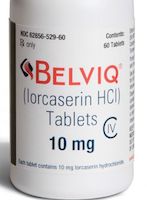
The recall is the result of an ongoing five-year post-approval study to look at the longer-term effects of the drug on a larger population. While 7.1% of weight-loss patients taking a placebo reported cancer diagnoses during that time, the cancer rate in Belviq was elevated at 7.7%. Tumor diagnoses were also a bit more similar among Belviq patients, with the most common types including pancreatic, colorectal, and lung cancers.
Interestingly, researchers did not start out looking for increased cancer rates in Belviq patients. The use of weight-loss drugs can bring a variety of side effects to the patient, and heart problems are the most common. The FDA followed 12,000 Belviq patients to look for these same kinds of issues. However, focus shifted as trends of increased cancer diagnoses began to emerge.
Eisai Co. maintains that the drug’s benefits outweigh any potential risks but “respects the FDA’s decision and is working closely with the agency.”
Weight-loss drugs are big business in the United States. Their impact, however, appears unable to keep up with the rate of weight gain in the country. Numbers released by the Centers for Disease Control show that about 40% of the American adult population qualifies as obese with nearly one in ten being “severely” obese. 50 years ago, the country’s obesity rate was just 1%. 40% of this increase occurred in just the past 20 years.
While medication may be a viable option for some, people should work with their doctors and other medical care providers to develop healthy habits and routines that help them to live healthy, active lives. While taking a pill to make oneself feel full may be easy, it pales in comparison to the impact of a balanced plate of healthy food and a 30-minute walk outside on a nice day.
